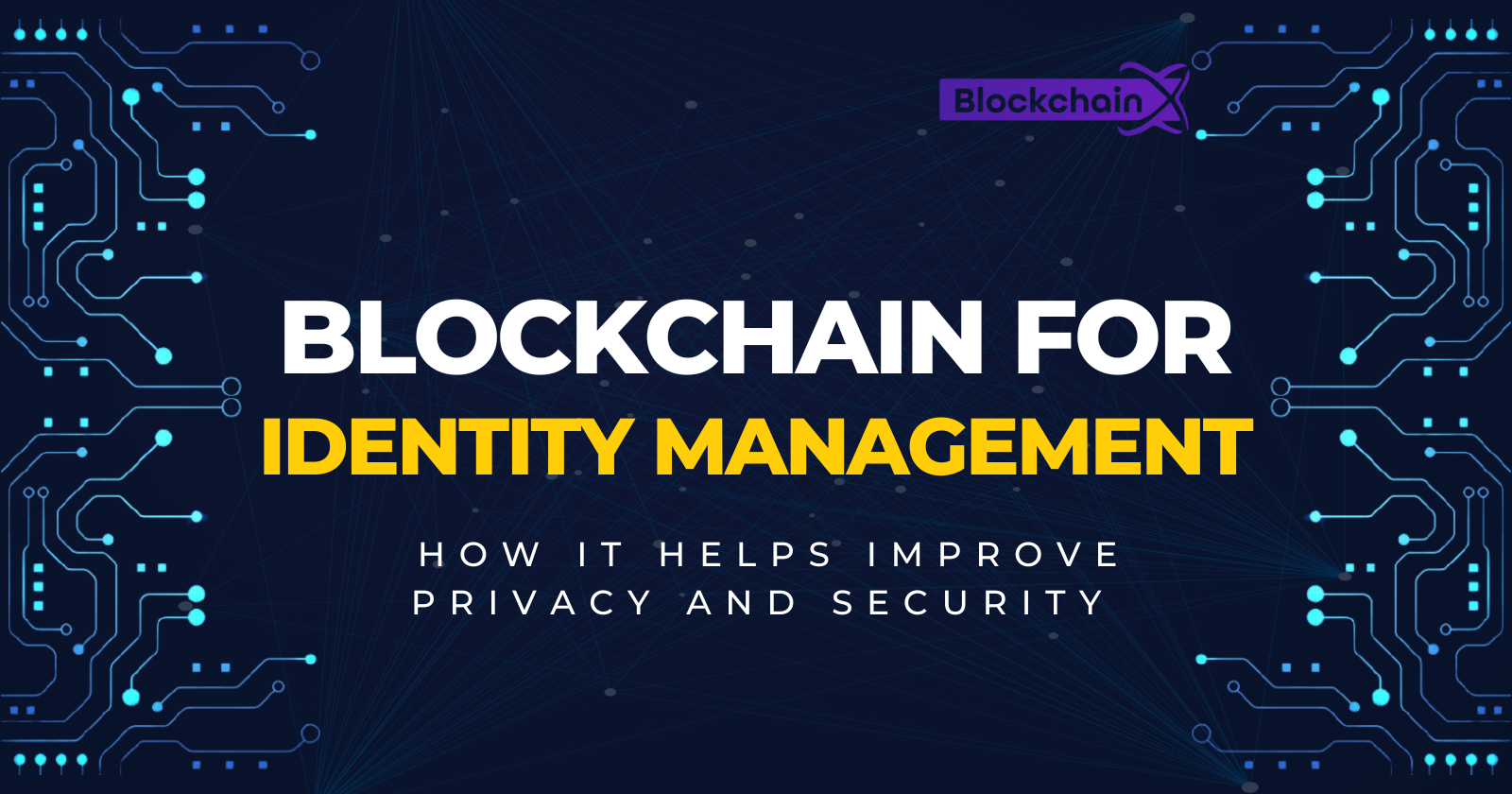Blockchain for identity management: how it helps improve privacy and security
 Jayasuriyan
Jayasuriyan
What is blockchain?
To understand what blockchain is , it is best to compare it with a database. And what is a database? Well, a collection of information that is stored in a computer system. This information is structured in a table format that allows easy searching and filtering. Additionally, databases are designed to hold large amounts of information and allow many users to access it simultaneously. So far everything is clear, right?
Well now let's see what the difference is between a regular database and the blockchain: the structure. That is the key difference. As its name suggests, the blockchain compiles information into groups, known as blocks, that contain a set of information. Each block has a certain storage capacity and, when it reaches its limit, it is chained to the previous block, which is already complete. This is how a chain of blocks is formed .
Currently, the way the world works, a large amount of certified information needs to be produced, managed and stored. At all times: every day, hour and second. Normally, when we save information on the Internet we do so in a single place, a server, and that has a great danger: it can be hacked and the information can be modified.
What blockchain does is protect itself with its structure . The blockchain development services revolutionizes this system by allowing information to be stored in millions of places at the same time, with thousands of eyes watching. This means that if someone makes a change, the rest will verify whether that change is real or not, making fraud more difficult.
Therefore, the strong point of this technology is consensus, since it assumes that if we all have the same information, it is real.
So, we can compare the blockchain as a gigantic database distributed among many participants. It is an unalterable logbook with the complete history of transactions that have been executed on the network. In summary, blockchain is a set of technologies that allow information, assets and value to be transmitted from one place to another, surpassing centralized systems and without the intervention of third parties.
The blockchain is a set of technologies that allow information, assets and value to be transmitted from one place to another, surpassing centralized systems and without the intervention of third parties.Not bad to start with, right? Don't worry, later you will understand how it works better. Keep reading!
How does blockchain work?
To understand how the blockchain works we must take into account 3 KEY concepts:
The blocks As we have said, each chain consists of multiple blocks. Well, each of them consists of the following elements:
The information of the block in question . For example, in the case of bitcoin it would be the information related to money transfers: the sender, the receiver, the date, the amount...
The hash : which is the block identification number. Each block has its own and is unique and unrepeatable.
The hash of the previous block , thus, each block is connected to its predecessor and successor (chronologically unchanged), creating the famous chain.
The nodes:
As we have said, one of the most important concepts of blockchain technology is its decentralization. No one owns the chain but the information is on thousands of devices. These devices are the nodes, which maintain copies of the blockchain.
Each participant is assigned a unique alphanumeric identification number that shows all their transactions, thus maintaining the transparency of this technology.
The nodes connect to decentralized networks called P2P that use the same language, with which they transmit a message called a token . Tokens can represent any type of asset, good or service (for example bitcoins). The information is distributed without the content being revealed, as it travels encrypted.
This is how token transfers are grouped into blocks until the block is completed, causing new transfers that have not fit to be grouped into the next block, and so on.
The miners:
As transfers are made, contracts are signed, etc. There is a need to store this information in a new block and the creators of these are known as miners . The process by which they create blocks is known as mining. To do this, miners use special software to solve a super complex mathematical problem to find an accepted hash (there are approximately four billion possible combinations!). When they find the correct combination the block is added to the chain.
Making a change to any block involves re-mining, not just the block in question, but all the ones that come after it. This is the key why it is incredibly difficult to manipulate blockchain data. However, when the change is accepted by the network nodes the miner is financially rewarded. In the case of bitcoins, for example, the current reward is 12.5BTS.
Why is blockchain so secure?
We don't trust others. That's a reality, whether in real life or in the digital universe, especially when it comes to money. This is why we usually turn to a third party who can verify our identity. Until now they were organizations such as banks, Paypal, etc.What happens is that when an intermediary certifies our identity, they acquire our data and will probably market it, violating our privacy.
7 uses of blockchain technology:
This technology is usually associated with cryptocurrencies, but the truth is that this is just the tip of the iceberg of all the possibilities that blockchain development company offer us. Ultimately, the data chain is useful for any information that needs to be stored intact and secure, in a decentralized way and without depending on intermediaries.
1. Health:
Blockchain can be the perfect solution to securely store patients' medical history so that patients have complete confidence that the record cannot be modified. Likewise, it could be available to each authorized doctor, regardless of the health center to which the patient in question has attended.
2. Internet of things:
Millions of devices connected to the internet that are currently usually managed by their providers... Do you really think that in a few years this centralized model will support so many devices? The revolution in the Internet of Things (IoT) market may also open a security gap. With the blockchain these devices could communicate without intermediaries, securely and directly.
3. Smart contracts:
Smart contracts can incorporate their information into the blockchain to facilitate, verify or negotiate a certain contractual agreement. In this sense, they operate under a set of conditions that users accept and, when those conditions are met, the terms of the agreement are automatically carried out. For example, if a person wanted to rent an apartment through a smart contract, the owner would agree to give him the code to the apartment door as soon as the tenant paid the deposit.
4. Property registration:
Blockchain technology can put an end to the slowness and margins of error of the bureaucratic procedures involved in registering property. Thus, it would allow banks, insurers, notaries, registries, buyers and sellers to safely monitor all phases of the process.Likewise, there are countries like Japan or Dubai that have unified the entire property registry using this technology. In this way, they can have a database that includes all the properties that exist in the country.
5. Music:
Today's music distribution methods have made it possible for many artists to distribute their music around the world via the Internet. This has caused numerous problems regarding payments and compensation for their songs and performances.The blockchain could provide a solution to this problem by offering control, independence and security. As you hear, music distribution could be about to be the protagonist of an entire revolution by managing the reproduction, distribution and enjoyment of music through the blockchain. Even Spotify is betting on its own blockchain!
6. Digital identity:
Without a doubt, the management of our identity is a real problem... We often hear about security failures or data theft. Well, blockchain development could become a totally reliable system to validate identity.
7. Public services:
Is there any other sector where transparency is valued more? The blockchain could provide complete security in the management of information and total transparency in public records, management of licenses, transactions, resource movements, etc.
Subscribe to my newsletter
Read articles from Jayasuriyan directly inside your inbox. Subscribe to the newsletter, and don't miss out.
Written by

Jayasuriyan
Jayasuriyan
Digital marketing executive